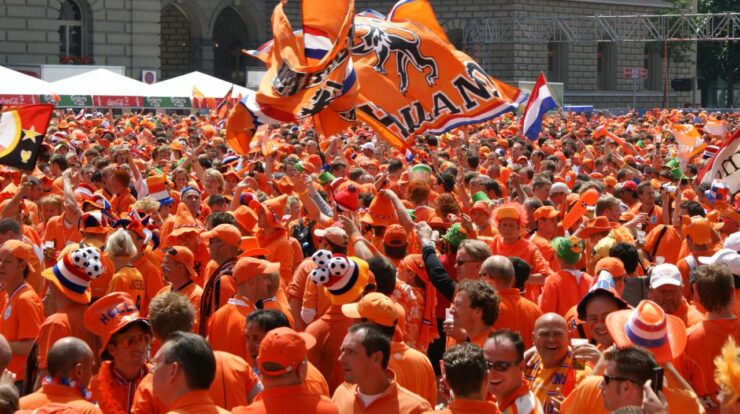
Kingsday, an iconic Dutch holiday, is a vibrant tapestry of tradition, culture, and national pride. Celebrated annually on April 27th, this day honors the birthday of King Willem-Alexander and has become a beloved symbol of Dutch identity.
Rooted in centuries of history and royal lineage, Kingsday is a testament to the Netherlands’ rich cultural heritage. The festivities are characterized by a sea of orange, the color of the Dutch royal family, as well as lively street parties, flea markets, and an abundance of music and entertainment.
Origins and History of Kingsday

Kingsday, a national holiday celebrated in the Netherlands on April 27, has a rich history and cultural significance. The origins of the holiday can be traced back to 1885, when it was first celebrated as the birthday of Queen Wilhelmina.
The holiday was later renamed Koninginnedag (Queen’s Day) in her honor and continued to be celebrated on her birthday.In 2013, Queen Beatrix abdicated the throne in favor of her son, Willem-Alexander, who became the first male monarch in over a century.
To mark the occasion, the holiday was renamed Kingsday (Koningsdag) and the date was changed to April 27, Willem-Alexander’s birthday.
Traditional Customs and Activities
Kingsday is celebrated throughout the Netherlands with a variety of traditional customs and activities. One of the most popular traditions is the vrijmarkt (free market), where people sell their used belongings on the streets. Other common activities include street parties, concerts, and parades.The
color orange is strongly associated with Kingsday, as it is the color of the Dutch royal family. Many people wear orange clothing, decorate their homes with orange flags and bunting, and even dye their hair orange.
Cultural and Societal Impact: Kingsday
Kingsday is an important cultural event in the Netherlands and plays a significant role in fostering a sense of national unity and pride. The holiday brings people together from all walks of life to celebrate their shared Dutch heritage. It is also a time for families and friends to gather and enjoy each other’s company.
Economic Implications

Kingsday has a significant economic impact on the Netherlands. The holiday attracts large numbers of tourists, who spend money on accommodation, food, drinks, and souvenirs. The retail and hospitality industries also benefit from the increased spending during Kingsday.According to the Dutch Bureau of Statistics, Kingsday generates an estimated €600 million in economic activity each year.
International Recognition and Influence

Kingsday is celebrated not only in the Netherlands but also in other countries with Dutch communities. The holiday has been celebrated in Indonesia, Suriname, and South Africa, among other places.In recent years, Kingsday has gained international recognition and has been featured in travel magazines and newspapers around the world.
The holiday has helped to promote the Netherlands as a tourist destination and has contributed to the country’s positive image abroad.
Outcome Summary
Kingsday serves as a catalyst for national unity, fostering a sense of community and shared pride among the Dutch people. It is a day when traditional values and modern trends intertwine, creating a unique and unforgettable celebration that showcases the spirit of the Netherlands.
FAQ Summary
What is the significance of the color orange on Kingsday?
Orange is the color of the Dutch royal family, the House of Orange-Nassau. It has been associated with the monarchy for centuries and is proudly displayed during Kingsday celebrations.
What are some traditional activities associated with Kingsday?
Kingsday is known for its flea markets, street parties, and abundance of orange-themed decorations. People gather to enjoy live music, food, and drinks, while children participate in games and activities.
How does Kingsday impact the Dutch economy?
Kingsday has a significant economic impact, particularly on the tourism, retail, and hospitality industries. The influx of visitors and increased spending during the holiday contribute to local economies.





